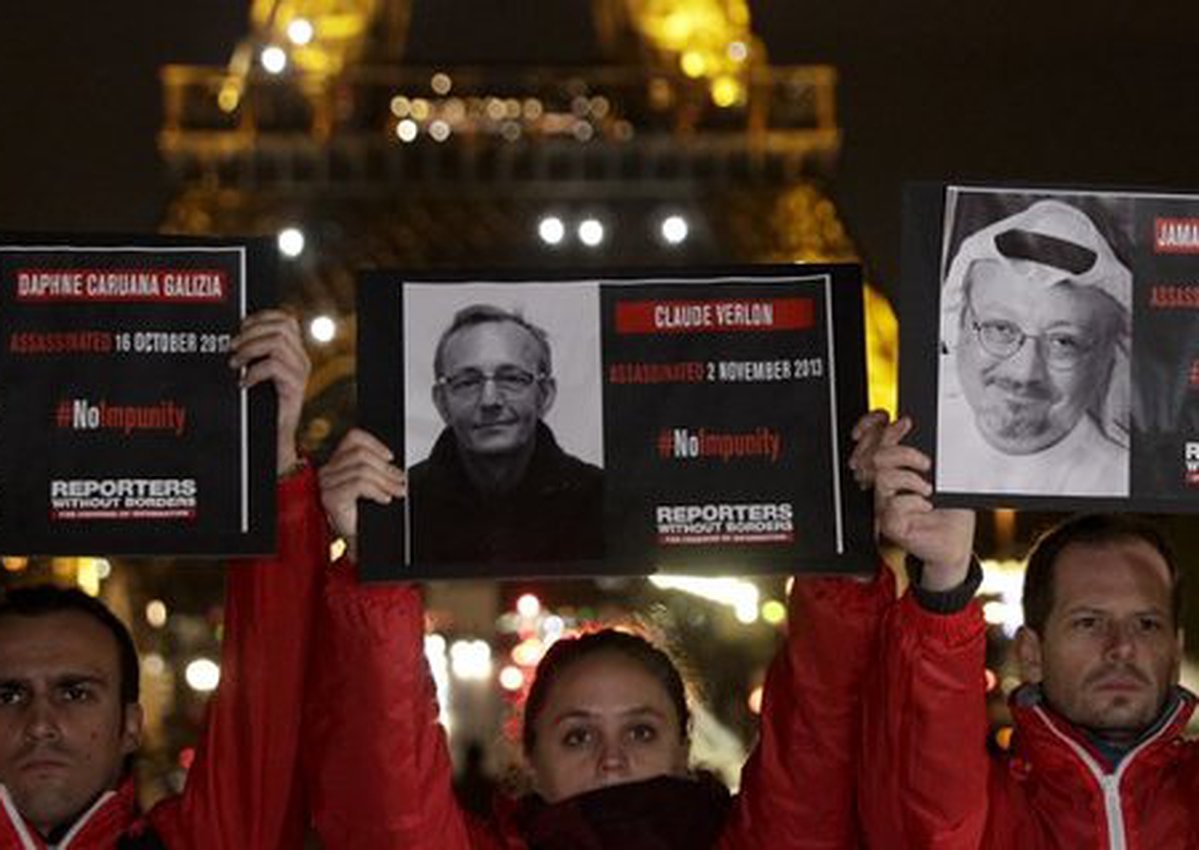We marked International Day to End Impunity for Crimes Against Journalists in November by remembering colleagues who have been killed this year doing their work.
Over the past 12 years, INSI has recorded the deaths of more than 1,000 journalists and media workers. In nine out of 10 cases, the perpetrators escape justice. So far in 2018, INSI statistics show that 61 journalists and media staff have died. INSI board member Cilla Benkö, the CEO and Director General of Swedish Radio, wrote in an article that serious crimes against journalists must be investigated thoroughly and lead to harsher sentencing.
“It is clear that the tone of debate has changed significantly. It has become legitimate to target a journalist,” writes Benkö. “A norm seems to have shifted, and it doesn’t help that a number of prominent politicians use a rhetoric that is contemptuous of journalists, describing the media as the enemy of the people. This only legitimises others to do the same.
“While threats are increasing, fewer voices are standing up for journalists’ important role in society. This is a dangerous development. “Threats against journalists constitute a fundamental threat to democracy – something which we all as a society have a responsibility to resist. If journalists fall silent, their vital role in holding power to account and conducting investigations – both absolutely essential in a well-functioning democracy – is also diminished.”
Caruana Galizia discusses Daphne's legacy at NewsXchange
The murder of Maltese investigative journalist Daphne Caruana Galizia in October 2017 is one of those that remains unsolved. Her son Matthew Caruana Galizia spoke about continuing the legacy of his mother and fighting for those responsible to be brought to justice at this year's News Xchange annual conference of broadcast journalists in Edinburgh.
The shifting frontlines of journalism were front and centre at News Xchange – underscoring the fact that security issues are global, psychological and digital. Dara Rosen, a teenage survivor of the mass shooting at the Marjory Stoneman Douglas High School in Florida, addressed the audience nine months to the day after 17 of her fellow students and staff members were murdered. She spoke eloquently about how she and her fellow students continued to publish the school's newspaper and explained how they sensitively interviewed survivors of the shooting, offering lessons that many newsrooms could take on board.
Meanwhile the Pulitzer Prize winning Reuters' journalist Clare Baldwin shared her experiences working in the Philippines and how she uncovered the brutal killing campaign of the country’s president Rodrigo Duterte.
Press vows to keep Brazil's Bolsonaro in check
Jair Bolsonaro’s campaign for the Brazilian presidency was notable for its aggressive, right wing tone, particularly the attacks he made on the media. Bolsonaro mimicked his US counterpart Donald Trump’s aggressive rhetoric throughout the campaign, accusing journalists of lying and ignoring his rise in the polls. And he continued his attacks even after being elected on 28 October, threatening to cut government advertising from any news outlets that "lie". Christina Zahar, the executive secretary at the Brazilian Association of Investigative Journalism (Abraji), wrote in an article for INSI that Abraji and civil society organisations will take up the fight to keep the new president in check.
“We will not back an authoritarian project without any criticism. This is done in the name of the public interest. The press should always pursue the truth and back freedom, human rights and minorities,” wrote Zahar.
Image by AFP





























































